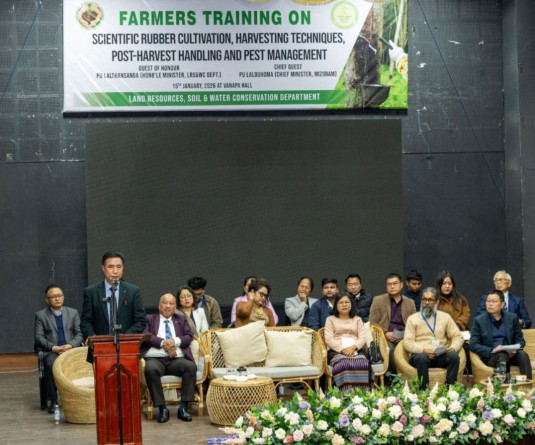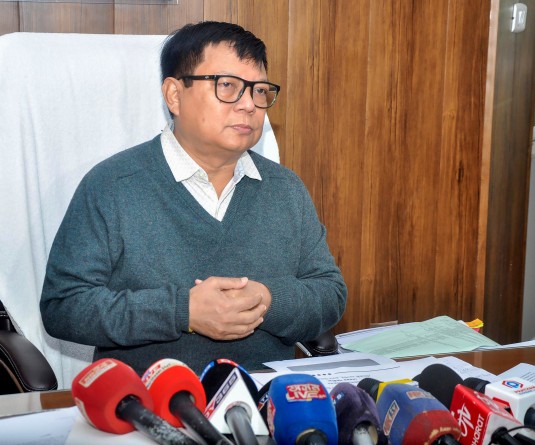
London, November 29 (PTI): A Geneva-based displacement monitoring group has called on the Indian government to enact legislation to help people displaced by ethnic conflicts in the north-east, who today reportedly number over 76,000.
From the 1990s to the start of 2011, over 800,000 people were reportedly forced to flee their homes in episodes of inter-ethnic violence in western Assam, along the border between Assam and Meghalaya and in Tripura, the Internal Displacement Monitoring Centre (IDMC) of the Norwegian Refugee Council (NRC) said.
It said that according to conservative estimates, more than 76,000 of them were still living in displacement in November 2011, but in the absence of proper monitoring it is not known how many of the rest have been able to rebuild their lives. These internally displaced people (IDPs) are not receiving the protection and assistance they need, according to a new report launched by the IDMC.
The IDMC said it based its report based in figures obtained from the government as well as NGOs based in the north-east. NRC Secretary General Elisabeth Rasmusson said: "Most of the people displaced by this violence have been forgotten.
State governments and district authorities have provided different levels of assistance. "However, this has generally been insufficient to make IDPs recovery possible and ensure their continuing access to basic necessities.
"For example, camps are often closed prematurely to push people to return home, in spite of ongoing threats to their security".
The report said that while the Sixth Schedule of India''s Constitution gives some of the hundreds of indigenous groups in the north-east greater control over the areas they live in, the autonomy which it offers has encouraged waves of inter-ethnic violence as groups seek to establish a local majority in order to qualify. Indigenous and non-indigenous groups have both been affected by violence and displacement.
"The Government of India must take urgent steps to ensure that all people in the north-east are safe, regardless of their ethnic identity, and to protect IDPs there," said Rasmusson. "The Government should pass an IDP law or draw up a national IDP policy in order to hold state and district authorities accountable with regard to protecting and supporting IDPs in their efforts to rebuild their lives, either in their places of origin, or elsewhere in the country".
The report said the Indian government should specifically target IDPs and ensure they were not excluded from pro-poor schemes such as the Sarva Shiksha Abhiyan programme for universal free primary education, or programmes under the National Rural Employment Guarantee Act.
From the 1990s to the start of 2011, over 800,000 people were reportedly forced to flee their homes in episodes of inter-ethnic violence in western Assam, along the border between Assam and Meghalaya and in Tripura, the Internal Displacement Monitoring Centre (IDMC) of the Norwegian Refugee Council (NRC) said.
It said that according to conservative estimates, more than 76,000 of them were still living in displacement in November 2011, but in the absence of proper monitoring it is not known how many of the rest have been able to rebuild their lives. These internally displaced people (IDPs) are not receiving the protection and assistance they need, according to a new report launched by the IDMC.
The IDMC said it based its report based in figures obtained from the government as well as NGOs based in the north-east. NRC Secretary General Elisabeth Rasmusson said: "Most of the people displaced by this violence have been forgotten.
State governments and district authorities have provided different levels of assistance. "However, this has generally been insufficient to make IDPs recovery possible and ensure their continuing access to basic necessities.
"For example, camps are often closed prematurely to push people to return home, in spite of ongoing threats to their security".
The report said that while the Sixth Schedule of India''s Constitution gives some of the hundreds of indigenous groups in the north-east greater control over the areas they live in, the autonomy which it offers has encouraged waves of inter-ethnic violence as groups seek to establish a local majority in order to qualify. Indigenous and non-indigenous groups have both been affected by violence and displacement.
"The Government of India must take urgent steps to ensure that all people in the north-east are safe, regardless of their ethnic identity, and to protect IDPs there," said Rasmusson. "The Government should pass an IDP law or draw up a national IDP policy in order to hold state and district authorities accountable with regard to protecting and supporting IDPs in their efforts to rebuild their lives, either in their places of origin, or elsewhere in the country".
The report said the Indian government should specifically target IDPs and ensure they were not excluded from pro-poor schemes such as the Sarva Shiksha Abhiyan programme for universal free primary education, or programmes under the National Rural Employment Guarantee Act.






